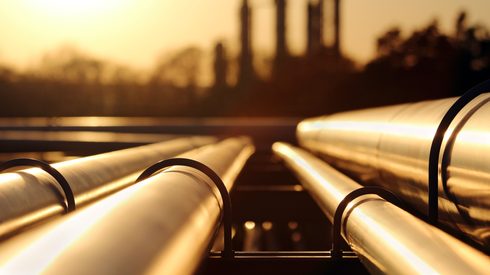“Manganese is overlooked… it is the forgotten battery material,” chief marketing officer at South-Africa-based manganese producer Manganese Metal Company, Madelein Todd, told Fastmarkets in an interview.
Manganese is widely used in steel production, accounting for more than 90% of global consumption.
Less than 2% of global consumption is converted into high-purity manganese for the battery sector. Many lithium-ion batteries, such as nickel-cobalt-manganese (NCM), use manganese sulfate as a raw material for the cathode precursor.
Battery-grade high-purity manganese sulfate monohydrate, which can be produced from high purity electrolytic manganese flake or from high-grade manganese ore, is not receiving the same attention as other cathode raw materials, whose supply is increasingly tight, Todd said.
“There is a gap between manganese ore and high-purity manganese products; that gap is very big and presently a very small quantity of the total supply of manganese is of the purity required for battery material,” she said.
“The market is fixated on cobalt, nickel and lithium for obvious reasons: these materials are more expensive, the percentage that goes into batteries is bigger and the supply chains are more complex… but we also need to be aware that there is not enough non-Chinese supply of high-purity battery-grade manganese coming on line yet,” Todd added.
Battery producers are coping with historically high prices across different chemistries, with most raw materials facing a deepening supply crunch. Cobalt and nickel have already faced tight supply in 2021, while Russia’s invasion of Ukraine has pushed both battery metals’ prices even higher and has further limited supply.
The Russia-Ukraine war has not caused immediate supply disruptions for manganese sulfate because China supplies over 90% of the high purity manganese market – also called battery-grade – according to the latest data from the US Geological Survey. The main producers outside China are in Belgium and South Africa.
Market in its infancy
The number of market players is currently limited because battery-grade manganese sulfate has a high barrier to entry.
Processing – both from metal and from ore – is technically complex and very specific to the quality of the starting material, creating high costs, Fastmarkets understands.
According to Todd, this industry is “still in its infancy.” Prior to the development of electric vehicles (EVs), use of high-grade manganese was less common due to very limited uses.
“Manganese sulfate is traditionally used in agriculture; but the purity requirements for the battery segment are completely different and hence currently there are a small number of producers able to meet the purity and stability of supply requirements for the battery grade,” she said.
Todd also pointed out that price incentive is needed to address the supply deficit, especially for non-Chinese supply to grow, which requires access to suitable technology and meeting ever-increasing demands for environmental, social and governance (ESG) compliance.
There are currently some projects in the pipeline or in the exploration phase in countries such as Botswana, the Czech Republic, Canada and Australia. Most of these projects, if they are indeed feasible, will not see the light until after 2026, Fastmarkets understands.
It is uncertain whether this potential supply will be competitive enough to enter the market, Todd said. “The EV industry will need to migrate to lower-cost battery materials such as high-manganese cathode formulations, which are currently under development.”
“Demand for manganese sulfate will therefore follow an exponential increase, similar to several other battery raw materials,” she said. “The current nickel supply uncertainty will accelerate demand for high-manganese batteries.”
“This will be particularly important toward 2030 when widespread commercialization of high-manganese batteries is expected,” Todd added.
Todd expects an increase in prices following the rise in demand. “The need for non-Chinese and ESG-compliant high-purity manganese sulfate has increased but supply is lagging behind due to initial China-dominance of cathode production and lack of incentive pricing outside of China,” she said.
“However, given the relative abundance of manganese ore and the number of high-purity sulfate projects in the pipeline, including the project of Manganese Metal Company, the scene is set for the battery industry to grow towards high-manganese formulations,” she added.
Fastmarkets’ assessed the price of battery-grade manganese sulfate at 9,000-10,000 yuan ($1,416.34-1,573.71) per tonne in China’s domestic market in the week ending April 1.
“In the coming years, battery producers will be looking into reducing cobalt and nickel and increasing manganese [consumption],” Todd said.
Ruby Lui, in Shanghai, contributed to this report.







